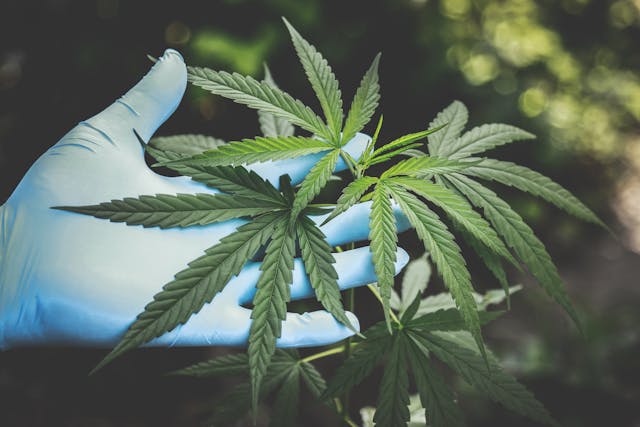A new study by LeafLink ranks Michigan second in the nation for marijuana sales per resident, trailing only Alaska, where tourism has boosted sales.
But unlike the Last Frontier, Michigan’s high ranking comes from a homegrown and ever-expanding cannabis market that’s lighting up metro areas and small towns across the state.
The study highlights that Michigan’s cannabis market has benefited from widespread retail access, particularly in metro areas, and a steadily increasing number of dispensaries.
By the end of 2023, Michigan dispensaries rang up a record-breaking $3.06 billion in sales, a 25% increase from the previous year. This equates to $385 worth of cannabis for every adult in the state, with recreational cannabis sales dominating the market at $2.74 billion.
Michigan’s cannabis industry has seen consistent growth since recreational sales began in December 2019. Last year alone, the state added 120 new dispensaries, bringing the total to about 750 statewide. Detroit’s entry into the recreational cannabis market further boosted sales in 2023, with the city awarding 70 licenses for adult-use dispensaries.
However, the industry’s growth hasn’t been without obstacles. Oversupply has led to price declines, with the average cost of cannabis flower dropping dramatically from $512 per ounce in January 2020 to just $74 last month.
Nationally, the average flower price on the LeafLink platform was $1,065 per pound, down $100 from its peak in June. Those numbers were not broken down by state.
Nationally, cannabis flower prices have declined by 7% year-over-year, with Michigan experiencing a sharper 14.1% drop. These trends have created challenges for sellers, who face margin compression and operational inefficiencies.
Despite price challenges, Michigan’s cannabis market continues to thrive, contributing significantly to local and state economies. In 2023, cannabis sales generated $457.6 million in tax revenue, providing a much-needed windfall for cash-strapped governments. This includes $274 million from the 10% excise tax on recreational cannabis and an additional $183.6 million from the 6% sales tax on all cannabis products. The funds are earmarked for local governments, schools, and infrastructure improvements.
The growing industry has also created jobs and economic opportunities. Nationwide, the cannabis sector has become the fastest-growing consumer packaged-goods industry, generating over $32 billion in annual retail sales and employing half a million people. By 2030, U.S. cannabis sales are projected to hit $55 billion.
While Alaska leads the nation in cannabis sales per resident due to its strong tourism industry, Michigan has achieved its ranking through a different strategy: broad accessibility and steady market expansion. Unlike many states where cannabis sales are confined to limited areas, Michigan’s retail market is widespread, though some cities and towns have opted out of adult-use sales. In 2023, voters in several communities, including Birmingham and Grosse Pointe Park, rejected proposals to allow recreational cannabis sales.
Michigan’s ranking as the second-highest state for cannabis sales per capita underscores the state’s growing prominence in the industry. As new licenses are issued and retail markets expand, Michigan is well-positioned to maintain its leadership in the cannabis sector, even as the industry navigates a challenging pricing environment.
The average cost of flower on LeafLink’s platform dropped by about $100 between October and June, when the price was $1,152 per pound. The decline is the result of oversupply from outdoor harvests in key states like Michigan and Arizona, according to the study. Prices are expected to keep declining through the end of the year as bulk flower is processed into packaged products.
Read more at Metro Times







